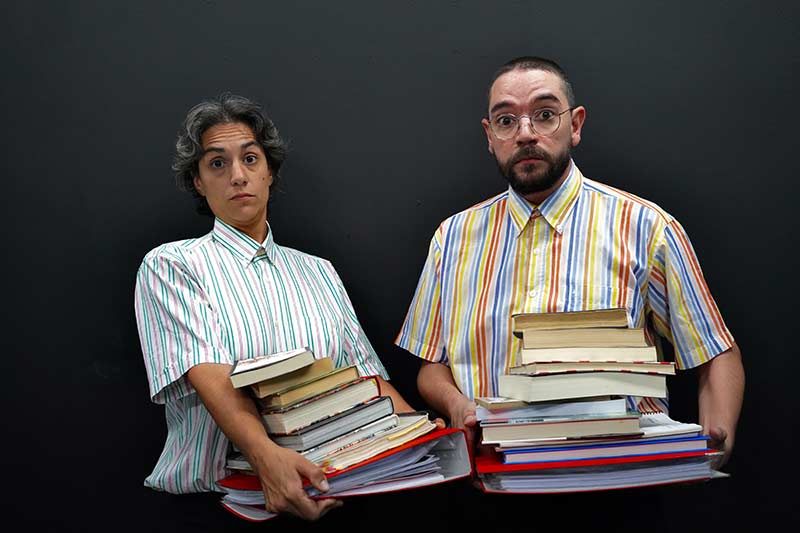Tlaxcala, Tlax. Science in Tlaxcala is a little discussed topic; However, Stefani Aletse Meza Zamora, a Graduate in Biology, MSc and MSc in Applied Biotechnology, strives to help tomato producers in her community using biofertilizers with her knowledge.
He is also pursuing a PhD in Biotechnology Science at CIBA-IPN. And from 2018, he began to devote himself entirely to science.
Alitse belongs to the San Lucas Cuauhtelulpan community, 10 minutes from the state capital. There, there are people who have greenhouses where tomatoes are mostly grown, but recently they noticed an epidemic of nematodes (like microscopic worms) that are damaging crops. This pest enters and settles at the root and removes nutrients from the plants and this does not give the amount of tomatoes that producers expect.
Based on this problem, Aletse enters his PhD with a project that attempts on the one hand to detect the pest by developing a technique to perform a diagnosis in tomato plants. This technique has many advantages, among them it will be very fast, it can be applied directly in the field or greenhouse and the nematodes will be detected indirectly through the leaves (we don’t have to pull them out or expose the root) without damaging the plants. On the other hand, it is developing an eco-friendly (no chemicals) bio-fertilizer based on bacteria that promote plant growth. What to expect with this bio-fertilizer, in addition to increasing plant yields, is that it has nematicidal activity, that is, it also prevents the spread of nematodes already present in the soil.
“I feel very involved and really like to think that my work can finally be applied not only in my community,” she said.
About the project
The composition of the bio-fertilizer is based on bacteria that promote plant growth. They get into the soil, they do a tremendous job of providing some nutrients to plants, and they fight against some pests (such as fungi and various diseases).
“These are the bacteria that we isolated here from the soil of Tlaxcalan, from the soil of the Center for Applied Biotechnology Research located here in Tepitla. It is even the Tlaxcalan bacterium.”
Scientific Alitse
From a young age she was interested in biology, a taste that has been reasserted over the years. He studies in Tlaxcala by chance, since he discovered the state’s research center.
She knows that women sometimes experience discrimination or injustice on the grounds of sexuality, however, that she has not suffered for being a woman yet, but in general she has had to see through her colleagues, the requirement to be a mother and to dedicate herself to science at the same time.
For Alitse, her contribution to science goes hand in hand with her research project, that is, at the same time she seeks to develop early diagnosis technology, she is also helping tomato producers. To provide them with recommendations on the best choices for their crops and to explain agricultural processes that they sometimes do not know about. However, she has noticed how some farmers are starting to look for her to improve their yield and hopes that little by little the range will be greater and her technology will reach more ears.
What would you say to girls and teens who want to be scientists?
“To do this you have to be well convinced. If it goes well for you, you feel completely satisfied with what you are doing. The day you discover something new, the satisfaction lasts. It is something that makes you feel complete.”
Tlaxcala and Science
In Tlaxcala, she does not know many women devoted to science, and has more male friends. She herself did not know the research center in which she is now. “I don’t know if they don’t have the required spread,” he commented.
In turn, she is sure that most of the registrars she belongs to are foreigners (from other states) but not from Tlaxcala. They are a minority in the state, and there are hardly anyone from Tlaxcala.
An agricultural problem identified by him in his community. Producers are advised by the Department of Agriculture and Rural Development (SEFOA).
“A body that is supposed to train many engineers, who should go to the producers and say to them ‘I find out you have a problem and you should implement this or do this,’ but the producers are neglectful. A SEFOA engineer comes in and tells you “sign me” but they’re not really doing their job »emphasized.
Therefore, all producers are experimental because no one has actually studied it.
One of the local environmental problems they face is the pollution of the Zahuapan River. Some crops are irrigated with their water, which is full of diseases, chemicals and garbage. Tlaxcala has many people with kidney failure and it is believed that much of this is due to water or things that are already contaminated. The smell of the river in the afternoon is impossible for her.
science in class
For her, it is important to change the way science is taught, to make it fun, interesting, educational and exciting. At the same time, it is considered that most teachers who teach science do not know how to impart their knowledge, which becomes a big problem because the knowledge does not reach the students as they wish, i.e. there must be some kind of training so that professionals from other fields of knowledge (other than the methods of Teaching or pedagogy) can teach in the best possible way.
“If working in science in Mexico is really hard, it’s even more difficult in Tlaxcala,” Alitse commented regarding opportunities for researchers in the state. Likewise, he considers that the processes for admission of scholars into university classrooms, especially the Autonomous University of Tlaxcala, should be more transparent.
Tlaxcala scenario You do not receive money under formal agreements and we do not intend to do so. We want you to be part of this community of readers. Join our army of warriors and let’s fight together for more independent journalism and against disinformation.




/cloudfront-us-east-1.images.arcpublishing.com/eluniverso/O6OUIABGUZAX3G7EPWKCW4W4JQ.png)